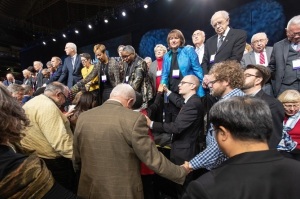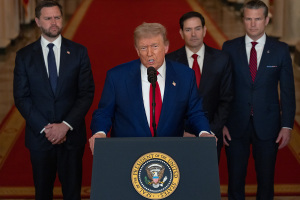House Votes Against Fighting in Libya but Maintains Funding
The House of Representatives on Friday voted against authorizing President Obama to continue involving the U.S. military in NATO operations in war-torn Libya but gave out a confusing message when it refrained from voting in favor of limiting funds to the fight there.
Members of the House voted 295 to 123 against the resolution in what is reportedly the first time either the Senate or the House has voted against U.S. military operations since the Bosnian crisis in 1999.
Based on the 1973 War Powers Resolution, the president is prohibited to continue committing the U.S. into foreign armed hostilities for more than 60 days from the day Congress is notified unless he receives authorization of Congress to continue.
The measure introduced by members of the Senate, John Kerry (D-Mass.) and John McCain (R-Ariz.), was voted down by 70 members of the Democratic Party, the president's party. They joined the Republicans in voting against it with only eight Republicans voting in favor for continuous military involvement in Libya.
The White House has argued that the president requires no authorization from Congress to continue operations in Libya due to the fact that the current engagement does not meet the definition of "hostilities" but few members of Congress were convinced by this claim.
Furthermore, the profound division between both parties was evidenced once more in the voting for the second resolution.
The second resolution would have potentially cut any money directed to fund combat operations, leaving funding for aid, rescue, monitoring and reconnaissance operations untouched.
Ironically, the House voted against this measure with only 180 members supporting it and 238 members, 89 Republicans included, voting against the limiting of combat funding.
The failure of having both votes approved in the House makes way for the status quo to be preserved, which ultimately means that the U.S. will continue its operations in Libya.





























